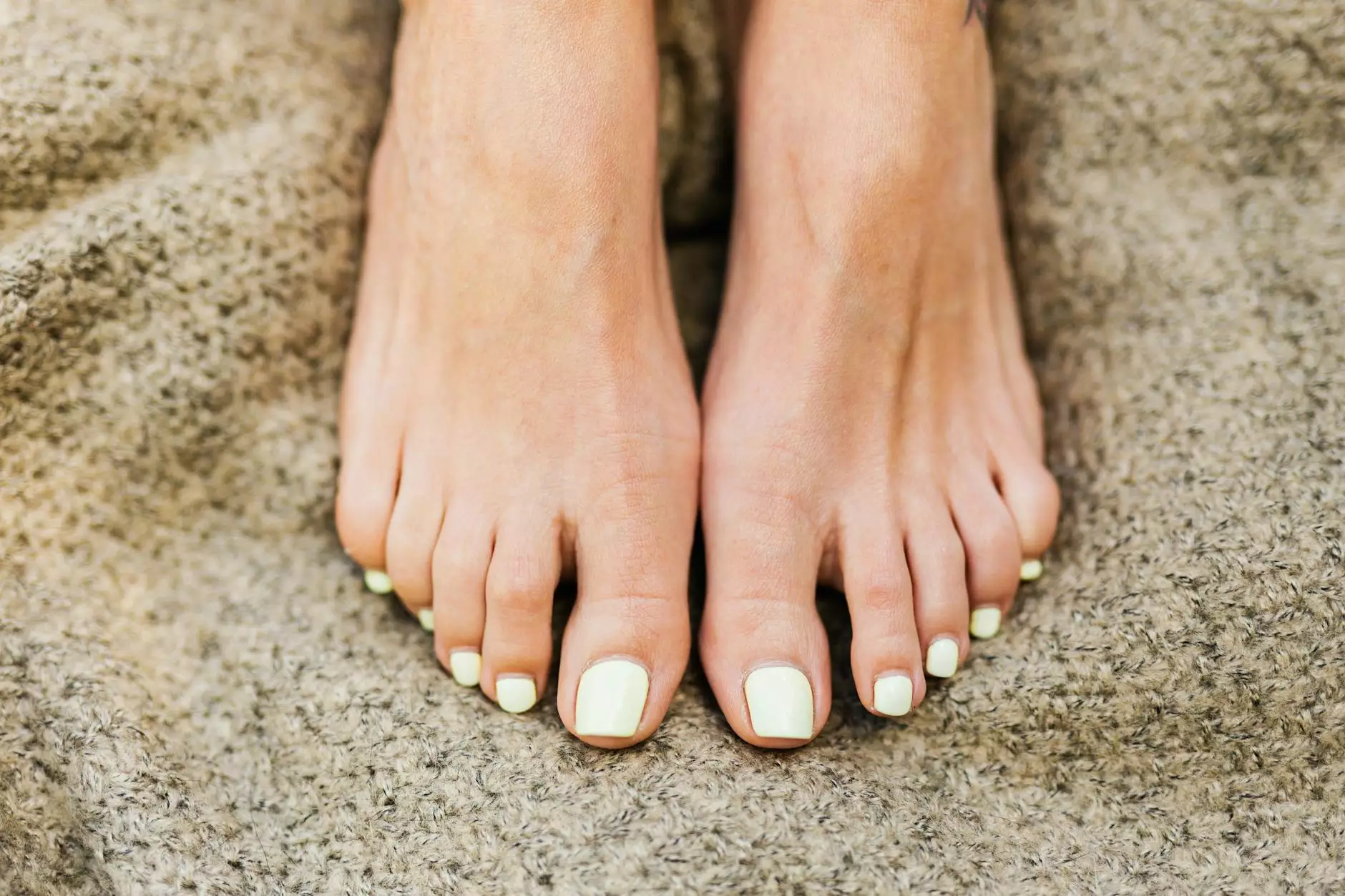Exploring the Benefits of Foot Care in Preventing and Treating Fungal Infections

The Importance of Early Detection
When it comes to fungal infections, early detection plays a significant role in preventing further complications and ensuring effective treatment. One of the most common forms of fungal infections is fungal fingernail infection. Understanding the signs and symptoms of early fungal infections can help individuals seek appropriate foot care in a timely manner.
Understanding Fungal Infections
Fungal infections are caused by various types of fungi that thrive in warm and moist environments. The feet, particularly the toes, provide an ideal environment for fungal growth due to the presence of sweat glands and the tendency to trap moisture in shoes and socks.
Fungal fingernail infections occur when fungi invade the fingernail plate, leading to nail discoloration, thickening, and deformity.
Recognizing the Early Signs
Identifying the early signs of a fungal infection is crucial in preventing its progression. Some common symptoms include:
- Discolored nails: The affected nails may turn yellow, brown, or white.
- Thickened nails: Infected nails tend to become thicker and may become difficult to trim.
- Fragile nails: Fungal infections can cause nails to become brittle or crumbly.
- Change in shape: The infected nail may change shape, with an increased curvature or bulging appearance.
- Unpleasant odor: Fungal infections can cause an unpleasant odor to emanate from the affected area.
- Itchy or irritated skin: The surrounding skin may become itchy, irritated, or develop a rash.
Preventing Fungal Infections
Proper foot care practices can significantly reduce the risk of developing fungal infections. Here are some preventive measures to consider:
- Keep feet clean and dry: Regularly wash your feet with mild soap, ensuring to dry them thoroughly, especially between the toes.
- Choose breathable footwear: Opt for shoes made of breathable materials to allow moisture to escape and prevent fungal growth.
- Change socks frequently: Wearing clean, moisture-wicking socks can help keep your feet dry.
- Avoid sharing personal items: Do not share towels, shoes, or socks to minimize the risk of fungal transmission.
- Protect your feet in public areas: Use flip-flops or sandals in public showers, pools, and locker rooms to avoid direct contact with fungal spores.
- Do not ignore abnormalities: Regularly inspect your nails and feet, and consult a podiatrist if you notice any changes or persistent issues.
Effective Treatment Options
While preventive measures are vital, seeking professional treatment is essential if you suspect a fungal infection. A licensed podiatrist can provide a comprehensive diagnosis and recommend suitable treatment options. Some common treatments include:
- Topical antifungal medications: Creams, lotions, or nail lacquers can be applied directly to the affected area.
- Oral antifungal medications: In more severe cases or when topical treatments prove ineffective, oral medications may be prescribed to combat the infection from within.
- Debridement: Trimming, filing, or removing infected nails can help reduce symptoms and allow topical medications to penetrate the affected area more effectively.
- Laser therapy: Advanced laser therapies can target and eliminate fungal infections while minimizing damage to surrounding tissues.
When to Seek Professional Help
If you suspect a fungal infection, it is crucial to schedule an appointment with a qualified podiatrist promptly. Early intervention can prevent the infection from spreading and causing further complications such as secondary bacterial infections or the formation of painful nail thickening.
At The Foot Practice, our team of experienced podiatrists specializes in the diagnosis, prevention, and treatment of various foot conditions, including fungal infections. Utilizing state-of-the-art technology and evidence-based approaches, we are dedicated to providing comprehensive foot care services tailored to individual needs.
Contact us today to schedule a consultation and take the first step towards healthy, fungus-free nails!










